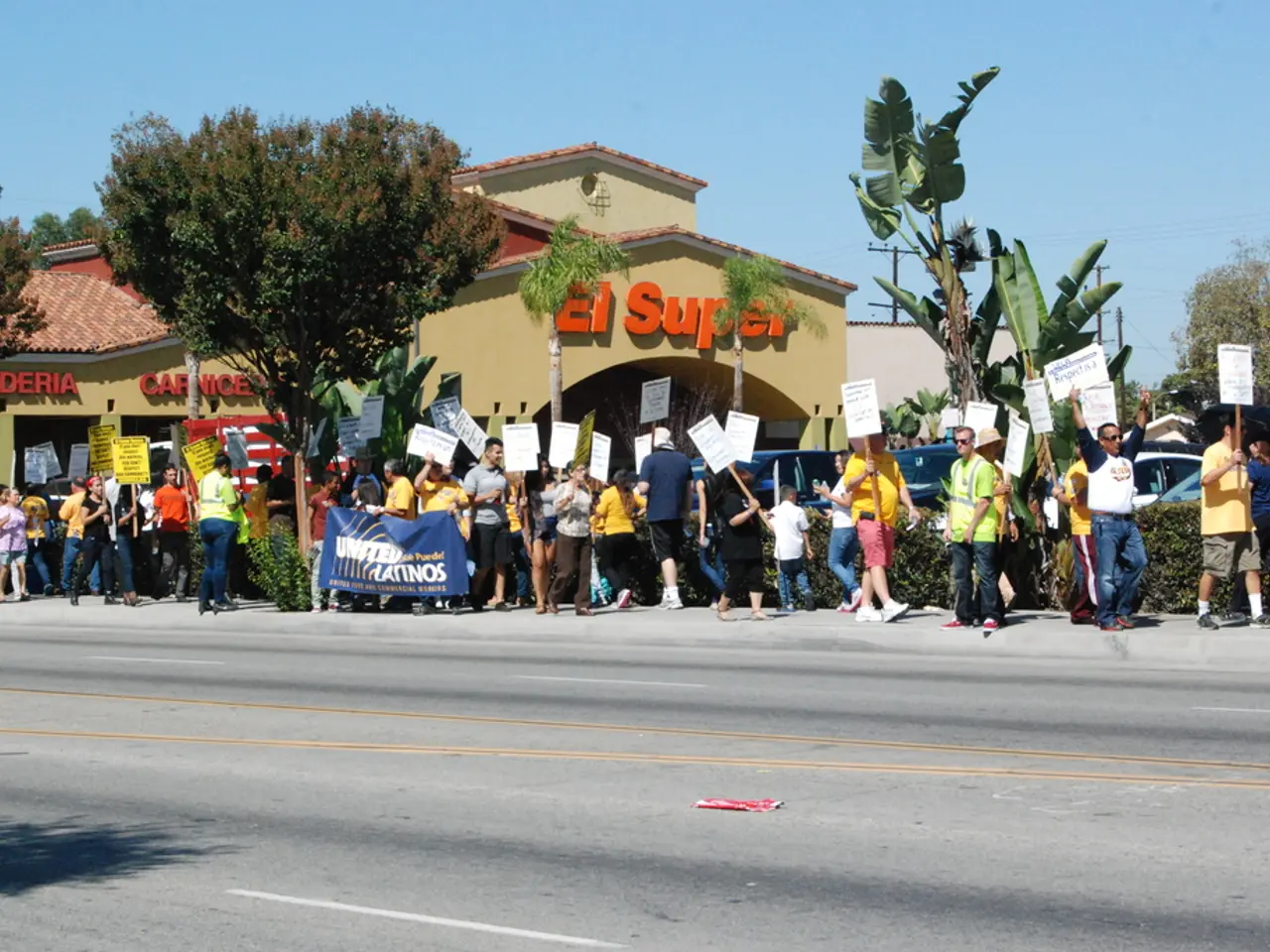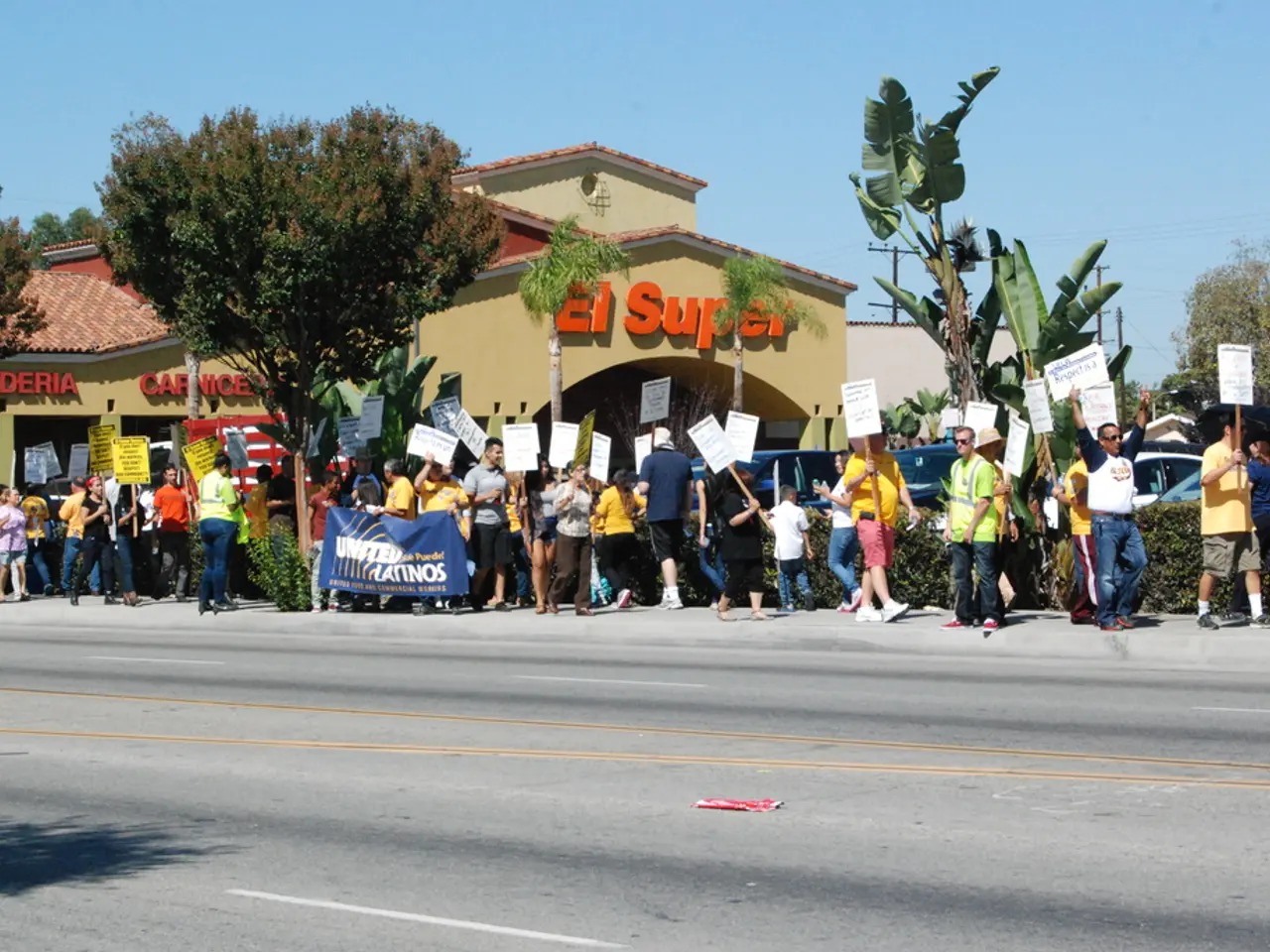The shift in the British policy towards the establishment of a Palestinian state: an exploration
In a significant move, the British government has announced that it will recognize a Palestinian state in September, unless Israel takes steps to improve the humanitarian situation in Gaza and commits to a long-term peace process that leads to a two-state solution. This policy change represents a new form of political pressure to push Israel towards negotiating and implementing the two-state solution, which remains the primary internationally supported framework for resolving the Israeli-Palestinian conflict.
The two-state solution envisions two democratic states—Israel and Palestine—living side by side in peace and security, with Jerusalem as a shared capital, in line with international law and UN resolutions. However, key challenges to this solution include ongoing Israeli settlement expansion in occupied territories, disputes over the status of Jerusalem, the fate of Palestinian refugees, and hardened political positions on both sides.
Keir Starmer, the UK's Prime Minister, has been vocal about his stance on the matter. He stated that statehood is the inalienable right of the Palestinian people and criticized the Israeli military offensive and policies in Gaza, stating that starving babies and children are a result of a catastrophic failure of aid in Gaza. Starmer has also condemned the attacks in Gaza and demanded immediate ceasefire, release of hostages, and disarmament by Hamas.
Despite criticism from Israeli Prime Minister Netanyahu, who described Starmer's plan as "appeasement towards jihadist terrorists," the UK's new foreign policy was presented after Starmer met with US President Donald Trump in Scotland. France also plans to recognize Palestine as a state during the UN General Assembly in early September.
The Balfour Declaration, issued by the British government in 1917, supported the idea of a "national home for the Jewish people" in Palestine without considering the rights of the Arab majority population. This historical responsibility has, in part, delayed the UK's recognition of a Palestinian state.
The most recent figures from health authorities in Gaza indicate that more than 60,000 people have died in Gaza as a result of the Israeli military offensive, with almost half being women and children. The United Nations and leading aid agencies have repeatedly warned of the increasing risk of starvation in Gaza. However, Israel has denied international journalists entry into Gaza since the beginning of the siege, making it difficult to independently verify the death toll.
Starmer reiterated the UK's support for Israel in his government statement on Tuesday. The conditions for the recognition of a Palestinian state include a ceasefire, not annexing the occupied West Bank, and committing to a long-term peace process.
This policy turnaround comes after an emergency meeting in London on July 29. The UK's stance closely aligns with international efforts to revive peace talks based on the two-state solution framework. The recognition of a Palestinian state, if implemented, could serve as a powerful tool to pressure Israel into negotiating a peaceful resolution to the long-standing conflict.
[1] Two-State Solution: https://en.wikipedia.org/wiki/Two-state_solution [2] History of the Israeli-Palestinian Conflict: https://en.wikipedia.org/wiki/Israeli%E2%80%93Palestinian_conflict [3] Balfour Declaration: https://en.wikipedia.org/wiki/Balfour_Declaration [4] UK's Recognition of Palestine: https://en.wikipedia.org/wiki/Recognition_of_the_State_of_Palestine [5] International Law and the Israeli-Palestinian Conflict: https://www.icj-cij.org/files/case-related/131/15185.pdf
- The new British foreign policy, aligning with France's plans, suggests recognizing Palestine as a state during the UN General Assembly in September, potentially serving as a political pressure tool to urge Israel towards the two-state solution supported internationally.
- The British government's policy change, announced due to the worsening humanitarian situation in Gaza, reflects a growing concern for international general news, including war-and-conflicts, crime-and-justice, and politics.
- In the Middle East, the Israeli-Palestinian conflict, marked by ongoing issues such as Israeli settlement expansion, disputes over Jerusalem's status, and the fate of Palestinian refugees, has been a focus of international media and continued political debate.
- Keir Starmer, UK's Prime Minister, has been vocal in the media about his stance on the Israeli-Palestinian conflict, criticizing the Israeli military offensive in Gaza and demanding an immediate ceasefire, release of hostages, and disarmament by Hamas.
- Looking back at history, the Balfour Declaration, issued by the British government in 1917, supported a "national home for the Jewish people" in Palestine, disregarding the rights of the Arab majority population, adding to the complexities and disputes in today's Israeli-Palestinian conflict.







